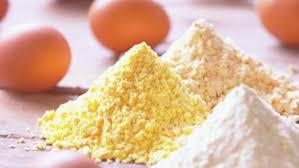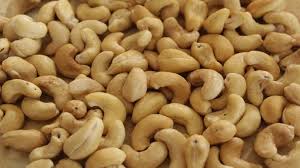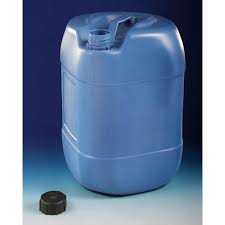Egg Powder Production in Nigeria; The Feasibility Report.

Egg is a highly nutritious product. Eggs are rich in protein, vitamins and minerals. The poultry sector in Nigeria has made tremendous progress in the last decade. It has grown into an organized and highly productive industry.
Nigeria is the largest producer of eggs in Africa, with 10.3 billion eggs produced annually, data from the Poultry Association of Nigeria (PAN) shows.
Nigerian poultry farmers usually experience a glut between February and May every year, largely because people tend to consume less egg during this period of the year and there is a short shelf life for eggs. This situation results in wastage of eggs, as eggs are mostly consumed during the rainy season.
To improve the shelf life and for ease of storage and usage, egg powder is very convenient. It is quite stable at room temperature and can be stored over longer period.
Powdered eggs are fully dehydrated eggs. They are made in a spray dryer in the same way that powdered milk is made.
Egg powder is used in fast food preparations, ice-creams, cakes, cookies, noodles, doughnut etc. In fact it can replace the use of fresh eggs in these food items, which would offer convenience and ease of handling as against shell eggs.
Reports reveal that food processing industries in West Africa spend over $2 billion annually in imports of egg and milk powder products and Nigeria is said to spend $1 billion annually in egg powder imports alone.
Presently there are only two (2) egg powder plants in Nigeria. One is located in Ogun state (Answer Industries Limited- makers of kara-kara) and the other in (Greenfield Assets Limited) in Ondo state. Currently, less than five percent (5%) of the country’s egg powder demand is met by local production.
In the food industry, bakery and confectionery are the major segments that account for a higher demand, followed by meat products and sauces & dressings.
The food segment accounts for a significant revenue share in the global egg powder market, and is expected to register a high growth rate during the forecast period. Currently, the demand for egg powder is also rising among personal care products, cosmetics, animal feed, and pet food products.
The global egg powder market is expected to be valued at over US$ 840 Mn in 2017, growing at a compound annual growth rate (CAGR) of four point five percent (4.5%) during the forecast period 2017-2025.
Egg powder has an excellent export potential in countries like Germany, Austria, The Netherlands and Republic of Korea.
This report seeks to examine the financial viability or otherwise of producing egg powder from fresh eggs in Nigeria.
Egg powder is produced from raw eggs by dehydrating or spray drying methods. Spray drying is a method to produce a dry powder egg by treating it with hot gas rapidly. Dehydration is done by removing water content from the raw eggs at a high temperature and is also ensured that any of the components is not lost. This process helps to provide a longer shelf life for the product. The product can stay up to six (6) months if stored in a cool, clean and dry place.
Whole egg powder would be packaged in vacuum HDPE bags in order to ensure the maximum safety and preservation.
The production plant comprises of egg powder plant, transformer with electric poles, generator, project vehicles, weigh bridge, wood pallets, AGO / PMS storage tank, stem Boiler with accessories and air compressor.
Table of Contents
EXECUTIVE SUMMARY 1.0 Business Overview 1.1 Description of the Business 1.2 Vision and Mission Statement 1.3 Business Objective 1.4 Value Proposition 1.5 Critical Success Factor of the Business 1.6 Current Status of Business 1.7 Description of the Business Industry 1.8 Contribution to Local and National Economy 2. Marketing Plan 2.1 Description of product 2.2 Product Packaging and delivery 2.3 The Opportunity 2.4 Pricing Strategy 2.5 Target Market 2.6 Distribution and Delivery Strategy 2.7 Promotional Strategy 2.8 Competition 3. Production Plan 3.1 Description of the Location 3.2 Raw Materials 3.3 Production Equipment 3.4 Production Process 3.5 Production Cost 3.6 Stock Control Process 3.7 Pre-Operating activities and expenses 3.7.1 Operating Activities and Expenses 3.8 Project Implementation Schedule 4.0 Organizational and Management Plan 4.1 Ownership of the business 4.2 Profile of the promoters 4.3 Key Management Staff 4.3.2 Management Support Units 4.4 Details of salary schedule 5. Financial Plan 5.1 Financial Assumption 5.2 Start up Capital Estimation 5.3 Source of Capital 5.4 Security of Loan 5.5 Loan Repayment Plan 5.6 Profit and Loss Analysis 5.7 Cashflow Analysis 5.8 Viability Analysis 6.0 Business Risk and mitigation factor 6.1 Business Risks 6.2 SWOT Analysis
Project Specification:
Additional Info
Get this Report
Direct bank transfer
To order the report, Please do pay the sum of ₦150,000 into
Account Name : Foraminifera Market Research Ltd
Account Number : 274 20 569 37
Account Name : Foraminifera Market Research Ltd
Account Number : 101 76 603 95
Account Name : Foraminifera Ventures
Account Number : 011 66 066 32
Make your payment directly into our bank account. Please use your Order ID as the payment reference. Your order will not be shipped until the funds have cleared in our account.
Instructions
After payment call us on 01 -29 52 413 / 08033782777 or email us at foraminiferamarketresearch@yahoo.com with the payment details. After payment confirmation, the soft copy of the report would be sent to you within 24 hours.



